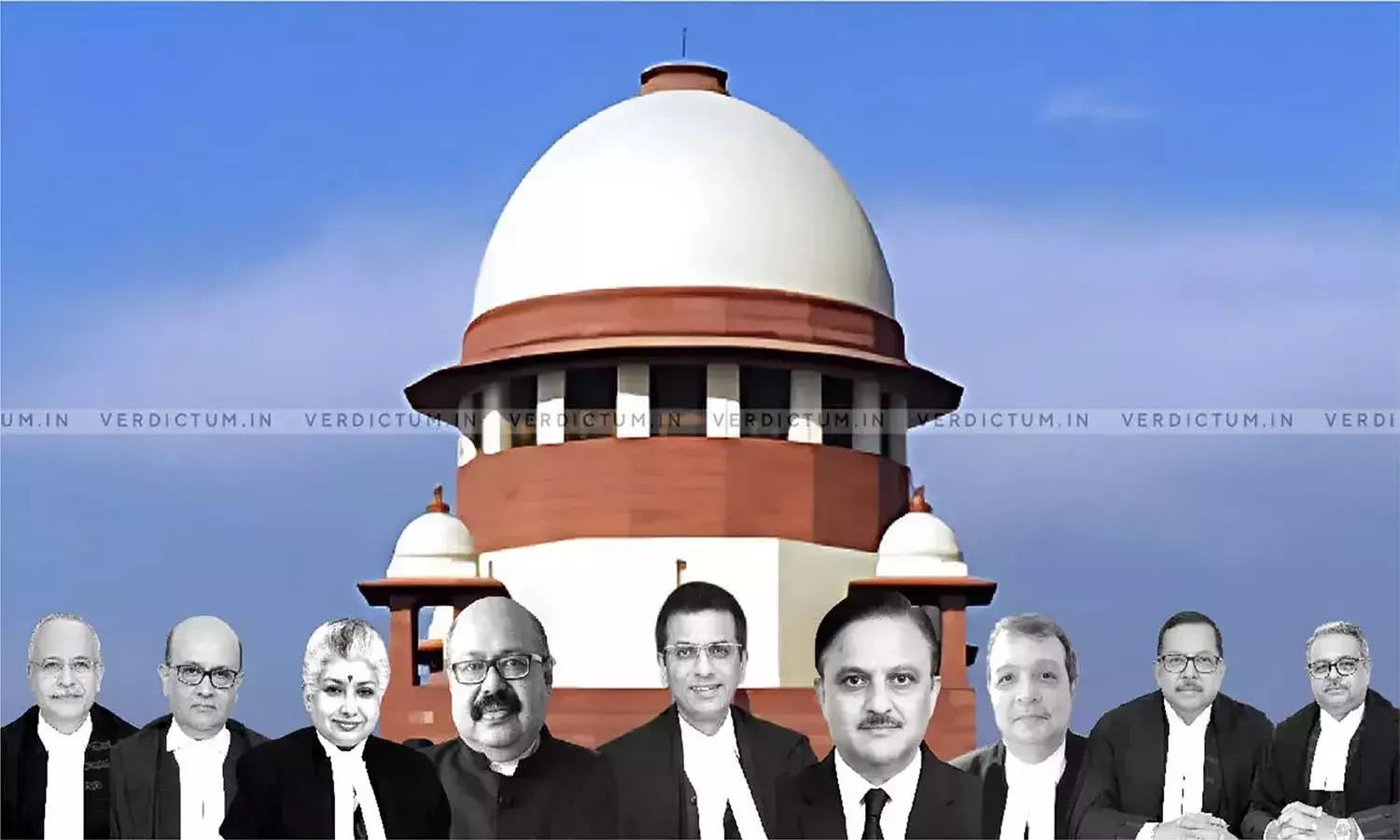Apex Court Dismisses Petitions Seeking Review Of Judgment Upholding States' Power To Tax Mining Rights; Justice Nagarathna Dissents
The Supreme Court has dismissed petitions seeking a review of its landmark judgment that affirmed the states' authority to levy taxes on mining rights and mineral-bearing lands.
The review petitions were filed by the Union Government, the Karnataka Iron and Steel Manufacturers Association, and other mining entities, following concerns over the financial implications of the ruling.
While dismissing the review petitions, the majority Bench of Chief Justice DY Chandrachud, Justice Hrishikesh Roy, Justice Abhay S. Oka, Justice J.B. Pardiwala, Justice Manoj Misra, Justice Ujjal Bhuyan, Justice Satish Chandra Sharma, and Justice Augustine George Masih observed that there was "no error apparent on the face of the record," citing the Supreme Court Rules, 2013.
"No case for review under Order XLVII Rule 1 of the Supreme Court Rules 2013 has been established. The review petitions are, therefore, dismissed," the majority concluded.
However, Justice BV Nagarathna, in her dissent, believed a case for review was justified, stating, "Having perused the review petitions, a case for review under Order XLVII Rule 1 of the Supreme Court Rules, 2013 is made out." She ordered issuing a notice to the respondents, returnable within eight weeks.
Despite Justice Nagarathna’s dissent, the majority view prevailed, and the review petitions were dismissed.
Pertinently, on July 25, the 9-Judge Bench of the Apex Court, held by an 8:1 majority that the States have the power to levy tax on mineral rights and that the Mines and Minerals (Development and Regulation) Act 1957 ('MMDR Act'), passed by the Union, do not limit such power of the States.
The majority judgment was delivered by the CJI, and the dissenting judgment was authored by Justice B.V. Nagarathna.
Disagreeing with the majority view, she had held that royalty is in the nature of a tax, and hence, the provisions of the MMDR Act regarding the levy of royalty restrict the power of the States to levy taxes on minerals. In that context, she had observed that, "I hold that royalty is in the nature of a tax or an exaction. It is not merely a contractual payment but a statutory levy under Section 9 of the Act (Section 9A relating to dead rent). The liability to pay royalty does not arise purely out of the contractual conditions of a binding lease. The payment of royalty to the Government is a tax in view of Entry 50 - List II being subject to any limitations imposed by Parliament by law in the context of Entry 54 - List I read with Section 2 of the MMDR Act, 1957."
Cause Title: Karnataka Iron and Steel Manufacturers Association v. Mineral Area Development Authority and Ors.
Click here to read/download the Order












